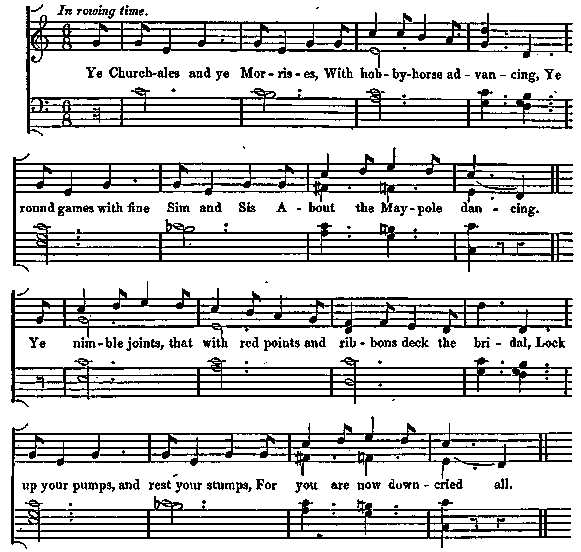Popular Music Of The Olden Time Vol 1
Ancient Songs, Ballads, & Dance Tunes, Sheet Music & Lyrics - online book
| Share page | Visit Us On FB |
|
|
||
|
REIGNS OF JAMES I. AND CHARLES I. 271 |
||
|
|
||
|
Castle-gate, or The Boatman's Delight: to its own proper new tune;" but it appears, from the following, which is the first stanza, that this air cannot have been intended.
" Farewell both hawk and hind, Farewell, my best beloved,
Farewell both shaft and bow, In whom I put my trust ;
Farewell all merry pastimes, For its neither grief nor sorrow
And pleasures in a row : Shall harbour in my breast."
There is an air in Thomson's Orpheus Caledonius called The Boatman, but wholly different from this. |
||
|
|
||
 |
||
|
|
||
|
SIR LAUNCELOT DU LAKE. This second tune to the ballad, " When Arthur first in court began " (which the black-letter copies, The Q-arland of Grood-will, &c, direct to be sung to the tune of Flying Fame—see p. 199), was transcribed by Dr. Kimbault, from the flyleaf of a rare book of Lessons for the Virginals, entitled Parthenia Inviolata.
The ballad is quoted by Shakespeare, by Beaumout and Fletcher, by Marston, &c. It is founded on the romance of Sir Launcelot du Lake, than which none was more popular. Chaucer, in " The Nonne Prest his tale," says— ' This story is al so trewe, I undertake, As the book is of Launcelot the Lake;" |
||
|
|
||